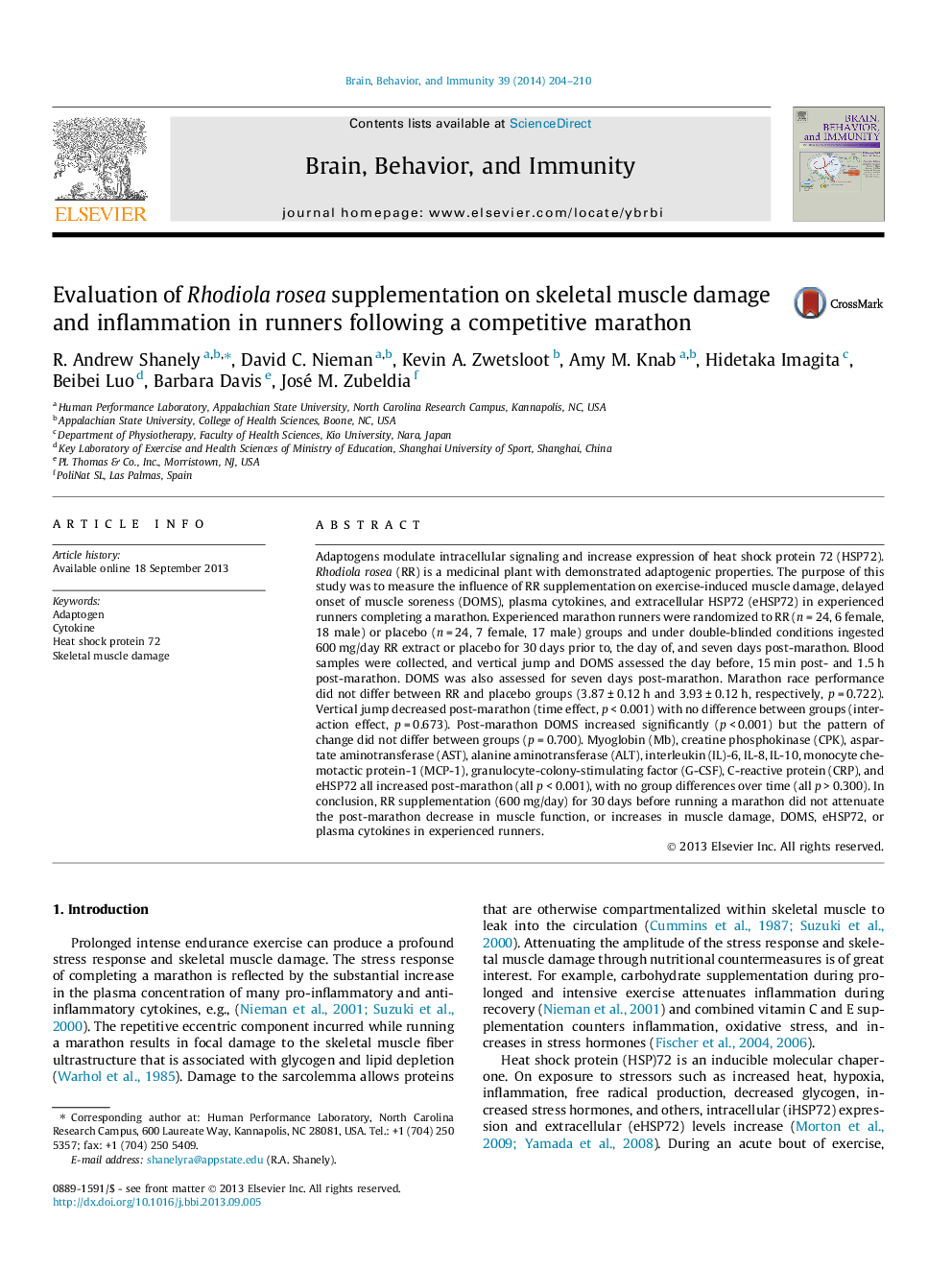| Article ID | Journal | Published Year | Pages | File Type |
|---|---|---|---|---|
| 922068 | Brain, Behavior, and Immunity | 2014 | 7 Pages |
Highlight•Supplementing with an adaptogenic herb for 30 days does not influence the stress response and muscle damage incurred by experienced runners completing a competitive marathon.
Adaptogens modulate intracellular signaling and increase expression of heat shock protein 72 (HSP72). Rhodiola rosea (RR) is a medicinal plant with demonstrated adaptogenic properties. The purpose of this study was to measure the influence of RR supplementation on exercise-induced muscle damage, delayed onset of muscle soreness (DOMS), plasma cytokines, and extracellular HSP72 (eHSP72) in experienced runners completing a marathon. Experienced marathon runners were randomized to RR (n = 24, 6 female, 18 male) or placebo (n = 24, 7 female, 17 male) groups and under double-blinded conditions ingested 600 mg/day RR extract or placebo for 30 days prior to, the day of, and seven days post-marathon. Blood samples were collected, and vertical jump and DOMS assessed the day before, 15 min post- and 1.5 h post-marathon. DOMS was also assessed for seven days post-marathon. Marathon race performance did not differ between RR and placebo groups (3.87 ± 0.12 h and 3.93 ± 0.12 h, respectively, p = 0.722). Vertical jump decreased post-marathon (time effect, p < 0.001) with no difference between groups (interaction effect, p = 0.673). Post-marathon DOMS increased significantly (p < 0.001) but the pattern of change did not differ between groups (p = 0.700). Myoglobin (Mb), creatine phosphokinase (CPK), aspartate aminotransferase (AST), alanine aminotransferase (ALT), interleukin (IL)-6, IL-8, IL-10, monocyte chemotactic protein-1 (MCP-1), granulocyte-colony-stimulating factor (G-CSF), C-reactive protein (CRP), and eHSP72 all increased post-marathon (all p < 0.001), with no group differences over time (all p > 0.300). In conclusion, RR supplementation (600 mg/day) for 30 days before running a marathon did not attenuate the post-marathon decrease in muscle function, or increases in muscle damage, DOMS, eHSP72, or plasma cytokines in experienced runners.
